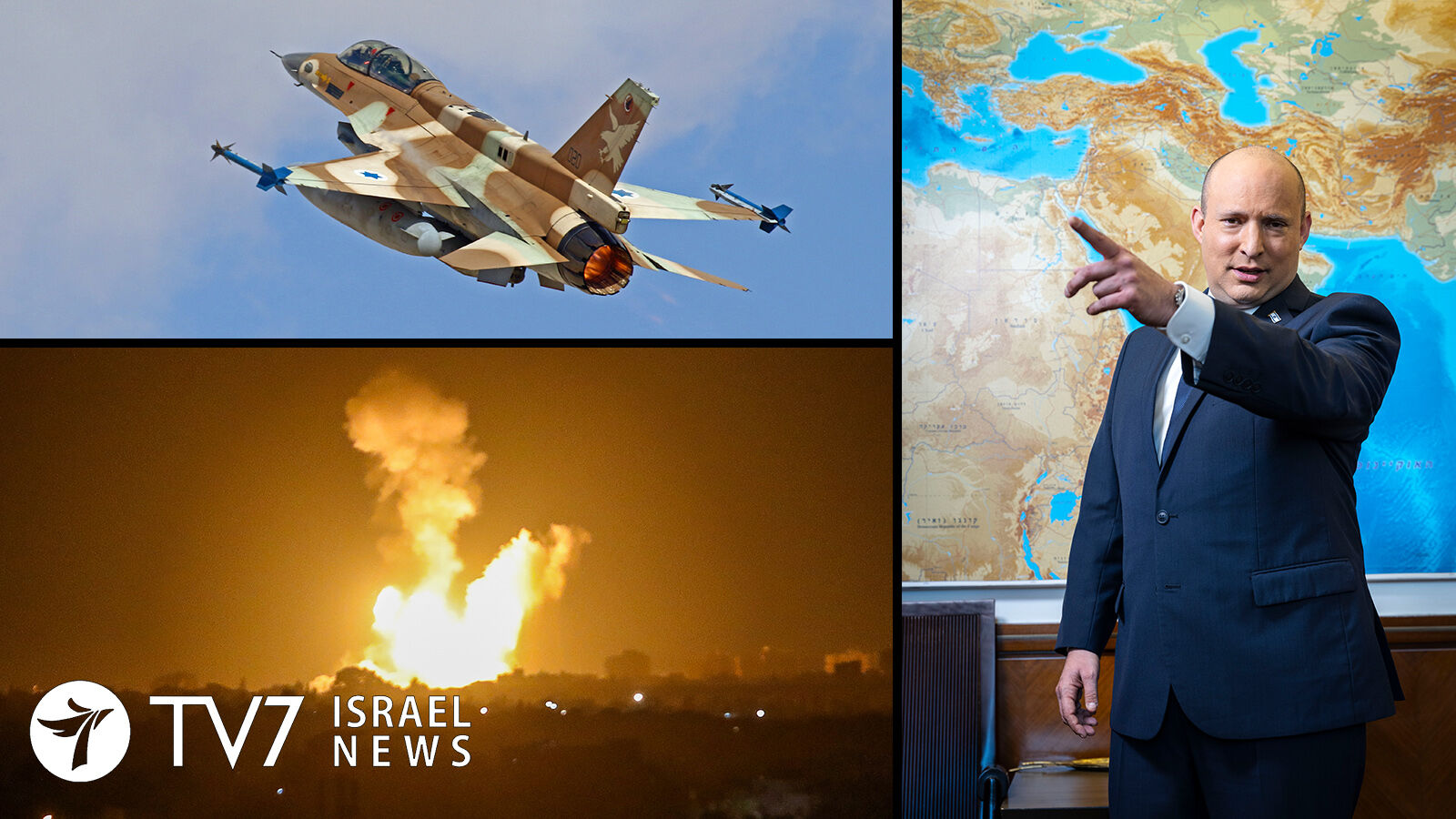The announcement came from Israeli Prime Minister Naftali Bennett during an address at the Institute for National Security Studies (INSS) in Tel Aviv.
By Jonathan Hessen and Erin Viner
“The campaign to weaken Iran has begun,” said the Israeli leader, explaining that the operation is being “conducted in all dimensions: nuclear, economy, cyber, over and covert actions, alone and also in cooperation with others.”
The actions will also focus on Iranian proxy groups, such as the Lebanon-based Hezbollah and the Hamas rulers of Gaza. While rockets fired at Israel “may be launched from Beirut or Gaza – the origin is Tehran,” said Bennett, continuing that, “the weaker Tehran is, so will its proxies be weaker; the hungrier the head of the octopus becomes, its tentacles will shrink – consequently, we will meet at our borders something much weaker.”
As an expected consequence of reviving the 2015 Joint Comprehensive Plan of Action (JCPOA) at ongoing talks in Vienna, Bennett warned that “removing sanctions and flooding billions of dollars into the coffers of this (Ayatollah) regime means, my friends, more rockets, more UAVs, more terror cells, more cyberattacks and disinformation campaigns, more of everything. By the way, not only against us – it will also be directed at our American allies in the region and our other partners.”
Prime Minister Bennett reiterated that likely concessions by the international community to Iran render a salvaged-JCPOA against Israel’s best interests. “We believe that the Iranians will continue being Iranians. We see it already now, during these negotiations, at a time when the Iranian Foreign Ministry officials sit in Vienna with the global powers– at the same moment the Islamic Revolutionary Guards Corps (IRGC) behaves as a regional bully and attacks the United Arab Emirates and other locations.
“This is the exact definition of ‘negotiating under fire’ – this is extortion,” underscored Bennett, stressing that, “If an agreement is signed and the stream of dollars resumes, we all understand that the Iranian aggression will only intensify in the region.”
His government’s strategy of countering Tehran “in every way” while undertaking any necessary action to provide security for Israeli citizens is the most effective, asserted Bennett, whether the JCPOA is revived or ultimately short-lived “until the sunset takes effect.”
So-called “sunset clauses” refer to the expiration – as early as 2024 – of the “snapback” mechanism to restore international sanctions if Iran violates restrictions on advanced centrifuges imposed by previous United Nations Security Council Resolutions.
While acknowledging that “The United States was and will always remain our best friend,” the Israeli leader went on to underscore that Washington’s best interests are not always compatible with Jerusalem’s.
“We speak about it very genuinely and understand one another,” he said, noting that, “The US position in the region is diminishing. Her eyes are naturally focused on the border of Russia and Ukraine currently, and deeply embroiled in a multi-year strategic conflict with China in the long run. This is the reality, there is no point in complaining about it. We must act within those existing circumstances – not in a world of wishes.”
Any vacuum in the geo-political arena will immediately filled by another force, said Bennett, adding that this new reality creates challenges but also opportunities for Israel.
“The place of the United States in the region, God forbid, can be filled by forces of terror and hate; however, with the right steps, it can be filled by Israel. The infrastructure of friendship that emerged with our neighbors can constitute a beginning of a multidimensional regional alliance. Together, we will contend better with the challenges that are introduced by radical forces and disrupters of stability in the region,” he said.
The Prime Minister went on to unveil a new ground-breaking Israeli military development that will radically shift cost-effectiveness of the country’s multi-layered aerial defense array.
“Within a year, the IDF will deploy a laser-based interception system on an experimental and then operational basis, initially in the south followed by additional locations,” enabling Israel to be “surrounded by a protective wall of lasers against missiles, rockets, unmanned aerial vehicles (UAVs) and other threats; thus repelling the strongest enemy risks.” The initiative will reverse the “economic equation,” he said, ultimately minimizing Israel’s defense budget while compelling adversaries to invest greater sums.
“If you are able to intercept a missile or rocket with an electric pulse that costs several dollars, we will in fact thwart the ‘ring of fire’ erected by Iran on our borders” following an initial investment that over the course of several decades demonstrating there is no “pay off” to attack Israel.
“This new generation of Israeli aerial defenses could also serve our friends in the region,” Bennett pointed out, who also contend difficult threats posed by Iran and its proxies.
